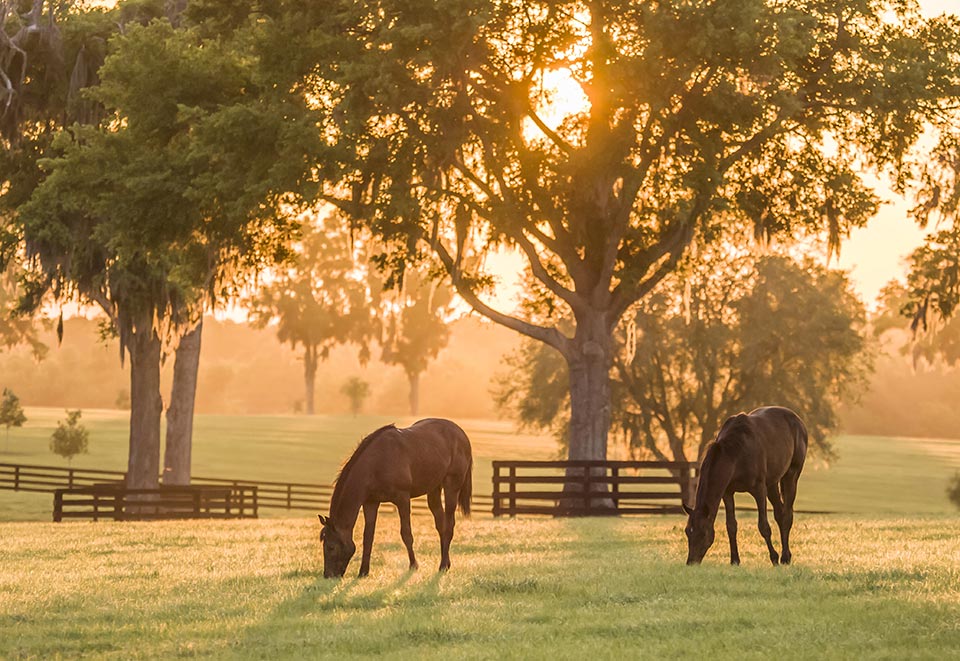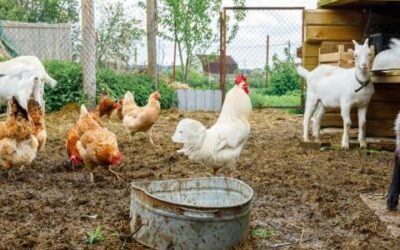Recently, Horse.com welcomed Dr. Clair Thunes, an equine nutritionist and owner of Summit Equine Nutrition based in Gilbert, Arizona, to a Q&A session called Am I Feeding My Horse Right? Dr. Thunes brought her expertise as a consultant who works with owners, trainers, and veterinarians to field audience questions during a live broadcast. One question from a Wisconsin owner concerned her two horses with the same diet, but one appeared healthy and the other appeared unhealthy, and she was seeking an explanation for this disparity.
I’m Feeding My Two Horses the Same. Why Is One Healthy and the Other Not?
 Two horses, one an easy keeper and one a hard keeper — it’s not uncommon for owners with multiple horses. What would cause such variability, all things, nutritionally speaking, being even?
Two horses, one an easy keeper and one a hard keeper — it’s not uncommon for owners with multiple horses. What would cause such variability, all things, nutritionally speaking, being even?
“There are so many factors,” said Dr. Thunes. “I see all the time people asking for nutrition advice in online forums. It always makes me cringe. You don’t know what the horse does for a living, where does he live, what sort of hay does he eat. There are so many questions to ask. It’s really important to take a step back and look at everything.” Here are some factors to may warrant a closer look:
Dental health. Dental health is a number one consideration when the health of a horse appears poor. Even if dental checkups are regular for the duo, some horses simply need additional management. Horses that are struggling to keep weight on can use extra scrutiny when it comes to troublesome wear patterns, sharp teeth or hooks, or tartar.
Parasites. Parasites impact health and the ability to extract nutrition from feed. Many owners do not know their horse’s whole health history from birth and may not know if they have been well protected from internal parasites. Even previous damage can affect current health — internal scar tissue will cause a horse to have a difficult time, extracting nutrients from their food.
Age. Two horses that board together may be different ages, and that youthful glow of health may be waning for your older horse. Even if the horses are the same age, horses often age differently due to a number of metabolic factors, even when they are maintaining the best level of health for them.
Social factors. When two horses live and feed together, it’s wise to consider social behaviors as a reason for differing health. Determine if one horse is being bullied by the other and if the healthier horse is the one that is helping himself to all the provisions.
Perception. Nutrition is critical to a healthy coat. Feed that isn’t nutritionally balanced, is low in amino acid lysine, lacks minerals and vitamins, or has a low protein-to-energy ratio can cause a coat to lose its healthy shine. But comparisons to a horse with a shiny coat can skew the perception of his otherwise healthy barn mate. Coat blooms, for example, can present differently depending on genetics, gender and color, all factors in the degree of luster, despite a proper diet.
Genes. The genetics of an individual horse can be enormously informative when it comes to how they react to what they are fed. The field of nutrigenomics — the study of relationships between what we eat and our risk and response to disease — is an exciting space when it comes to equine health, Dr. Thune said. Of particular interest are horses with equine metabolic syndrome, since studying a horse’s genetic makeup can help determine the triggers of this condition. Also, genes underpin many of the reasons horses present differently on the same diet, such as susceptibility to food allergies and finicky eating.
 Consulting your vet is an excellent first step to understanding what factors are at play – ask if they have specific training in equine nutrition. Dr. Thunes recommends equine nutritionists as the best resource for those wondering about health issues, including those who work for feed companies. They can be an excellent resource for knowledge about nutrition and can be relied upon for information that doesn’t necessarily mean promoting their product.
Consulting your vet is an excellent first step to understanding what factors are at play – ask if they have specific training in equine nutrition. Dr. Thunes recommends equine nutritionists as the best resource for those wondering about health issues, including those who work for feed companies. They can be an excellent resource for knowledge about nutrition and can be relied upon for information that doesn’t necessarily mean promoting their product.
You can find the full Q&A at Horse.com. Dr. Thunes’ answer to the two horses question occurs around 15-minute mark.




